Breaking the Chain of Sea Turtle Hunting and Illegal Trade
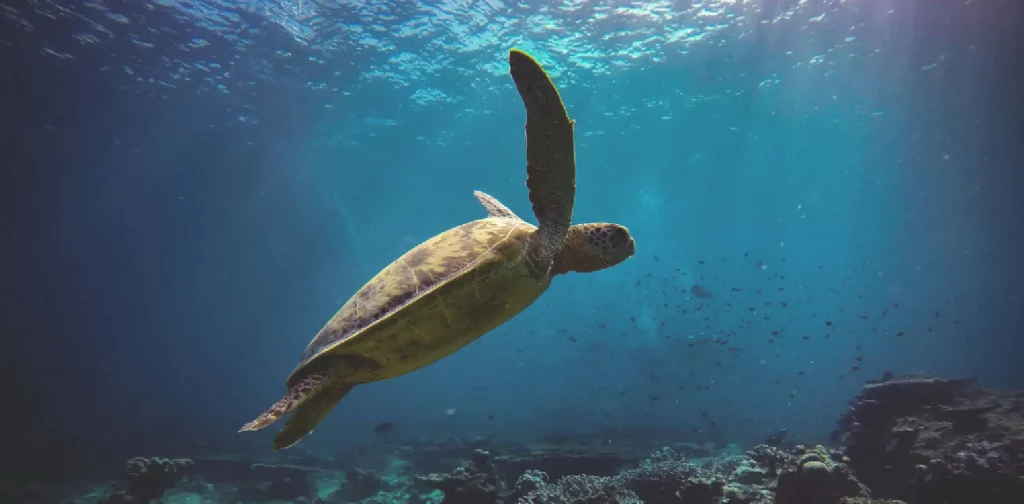
Photo: Jesse Schoff on Unsplash.
Out of the seven sea turtle species, six of them can be found nesting in Indonesia’s coastal areas. Unfortunately, these species are still threatened by hunting and illegal trade. Breaking the sea turtle hunting and illegal trade chain requires comprehensive actions from all key stakeholders.
Sea Turtles Hunting and Illegal Trade in Indonesia
Globally, the Convention on International Trade in Endangered Species of Wild Fauna and Flora (CITES) has prohibited selling and trading all sea turtle species. Similarly, they are protected by law in Indonesia, rendering all forms of trading illegal. The perpetrators can be sentenced to five years in prison and a fine of IDR 100 million (approximately USD 6,500).
Unfortunately, the law does not immediately halt sea turtle hunting and illegal trade. Based on observation in 61 locations in Indonesia in 2018, CITES found that sea turtle specimens were openly sold in seven locations in Sulawesi and Bali islands. The meat, body parts, and eggs were sold for consumption. Meanwhile, trinkets and ornaments from sea turtle shells were also displayed in souvenir stores.
Besides domestic needs, the CITES report also mentions that sea turtles hunted in Indonesia are being exported abroad. For instance, the eggs are exported to several regions in Malaysia, such as Sabah and Sarawak. Sea turtles hunted in Borneo and Bali also face similar fate. The trafficking network for live species and sea turtle-derived products is spread to Vietnam and China.
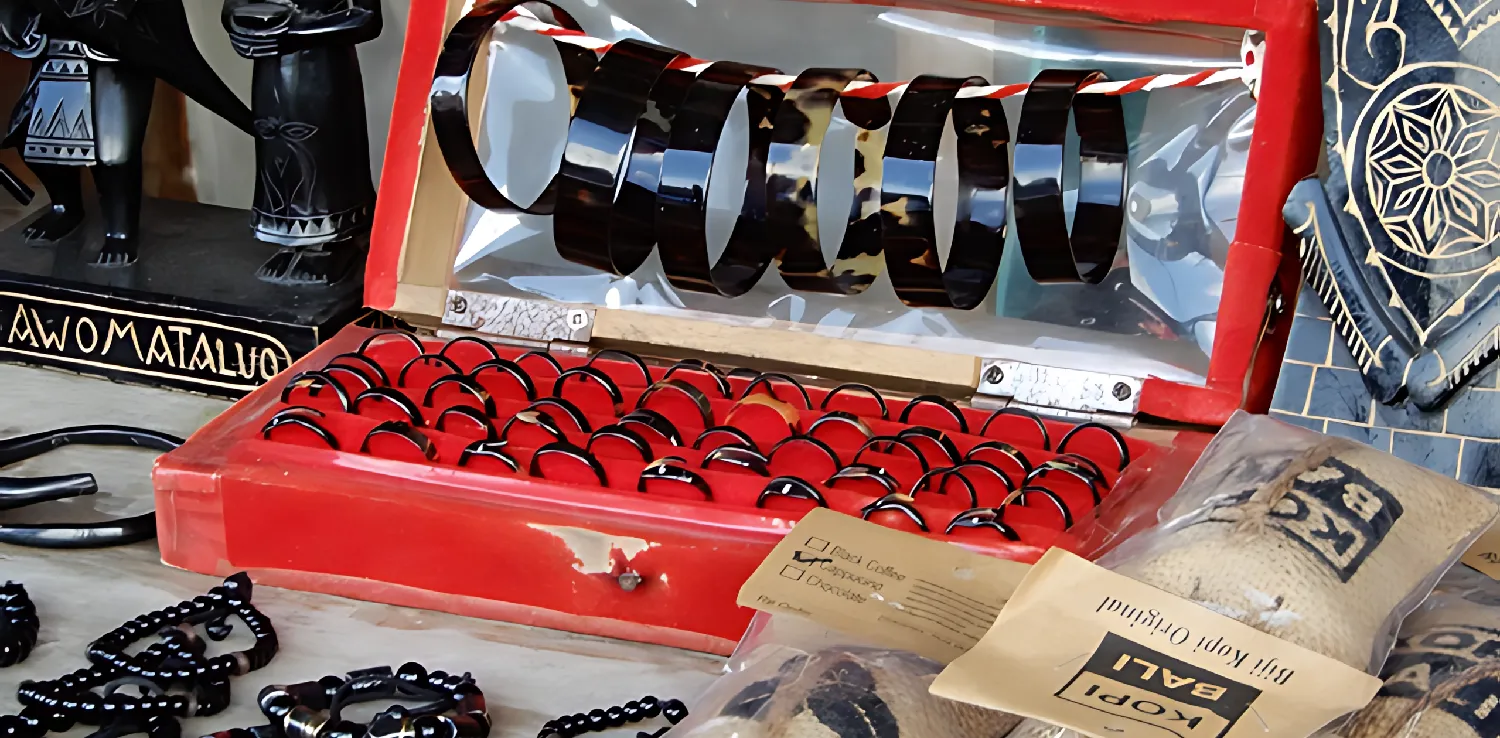
Online Trading
In general, sea turtle exploitation in Indonesia has declined due to people’s awareness and the enforcement of the laws. Yet, merchants still find other ways to maintain their businesses. CITES reported that illegal trading in Sulawesi and Bali is commonly done through phone calls. They exchange information regarding sea turtle meat availability and arrange transaction points.
Other than that, there has been an increase in online trading as well. CITES found 607 products from sea turtles and 400 grams of sea turtle eggs being promoted in 213 online advertisements across multiple websites. The products are mostly trinkets, dry sea turtle egg powder for fishing baits, and sea turtle oil dubbed to have medical benefits.
A survey conducted among 11 marketplace platforms and social media between August and September 2019 found at least 29,326 products derived from sea turtles sold in Indonesia, with a total value of IDR 5 billion (approximately USD 300,000).
Traditions and Customary Practices of Consuming Turtles
Besides trading and trafficking, sea turtles are hunted and consumed for traditional practices. For example, the people in the Mentawai Islands have the tradition of hunting sea turtles to be consumed during their traditional celebration feast. Dozens of leatherback sea turtles are captured and consumed while their shells are displayed at home. Similarly, in Bali, sea turtles are closely related to Indigenous celebrations or religious rituals, where the meat is used as offerings.
In Kei Kecil Island, Maluku, there is also a tradition called Perburuan Tabob (Tabob Hunting), which involves hunting leatherback sea turtles to be consumed by the people from August to February. Essentially, sea turtles are considered sacred by the people of Kei Island. So, consuming the meat must be done according to rules and requirements that must be obeyed.
However, while Tabob Hunting was initially done for traditional purposes, cultural and value shifts, especially among the youth, have made sea turtle hunting and consumption for personal purposes increasingly common.
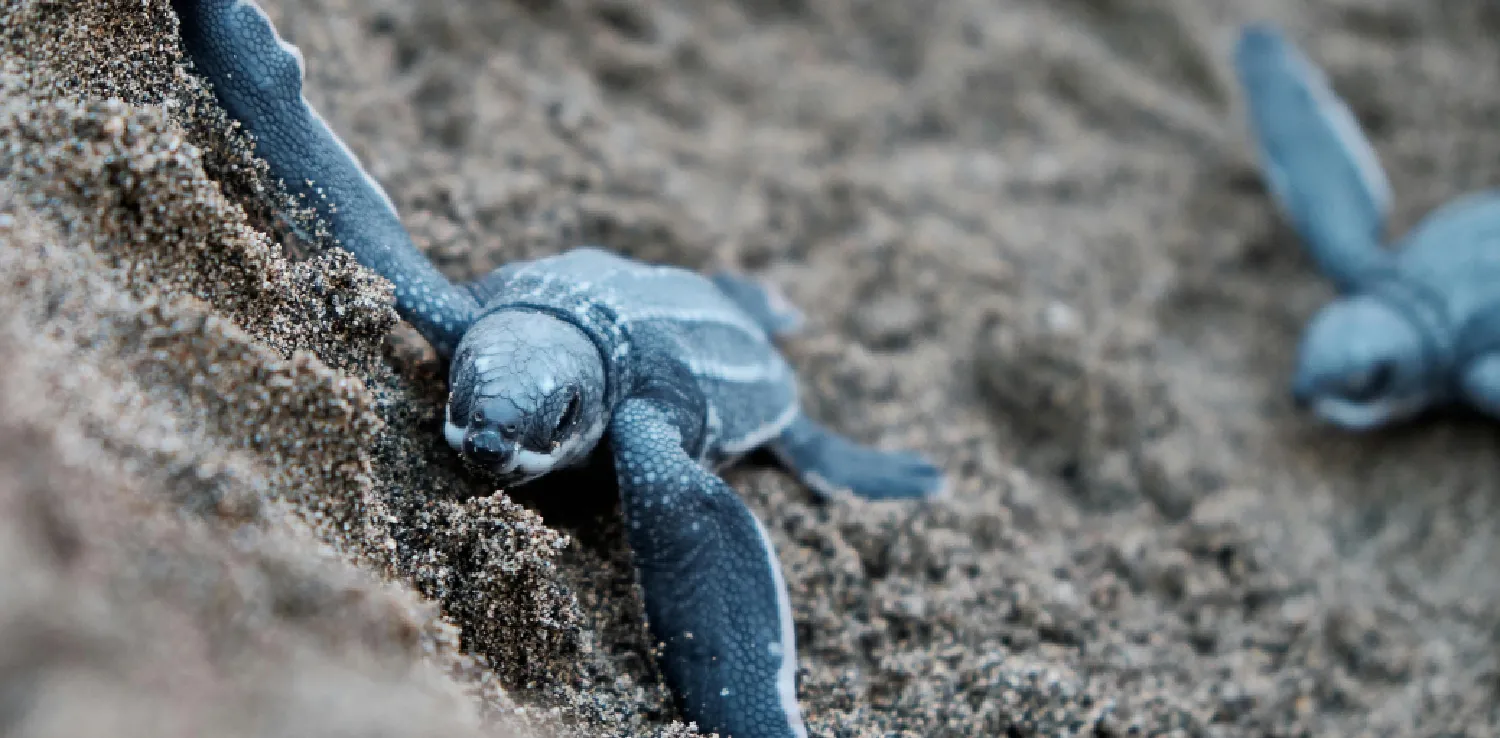
Breaking the Chain
Environmental degradation and habitat destruction threaten sea turtles’ lives. To protect them, the Indonesian government published the National Action Plan on Sea Turtle Conservation 2022–2024 as a guideline for managing sea turtles.
In practice, the Ministry of Marine Affairs and Fisheries established 5.5 million hectares of sea turtle habitat as a conservation area in early May 2024. The ministry also saw that implementing monitoring and control on the nesting beach with local communities can reduce illegal hunting in the Kalimantan and Maluku islands.
Additionally, CITES also provides several recommendations to protect sea turtles from hunting and illegal trading:
- Streamlining policy and legislative provisions, administrative capacities, and implementation. Countries must implement clear regulations regarding the prohibition of trade in turtles or their derivative products. Additionally, the role of government bodies must be identified clearly to ensure the responsibilities of species conservation.
- Improving monitoring, investigations, law enforcement, and gateway protection. Governments must monitor buying and selling areas, such as markets in coastal areas or ports, where illegal turtle trade might occur. Monitoring and investigations are crucial to gaining information on trade activities, from smuggling methods and routes to the parties involved. This information can be the basis for formulating and implementing the right actions to tackle this issue.
- Education and awareness-raising. This includes educating local communities, fishermen, traders, and consumers on the impact of sea turtle hunting and illegal trade on the species’ livelihood and the health impacts of consuming turtles. Synergizing with cultural practices is also crucial to managing traditional practices involving sea turtles.
- Enhancing regional cooperation. ASEAN countries affected by illegal trading can collaborate to identify and halt the trading route in Southeast Asia and other regions, including East Asia. Regional collaboration can also serve as a platform for capacity building and knowledge sharing to effectively stop illegal trading.
- Protecting habitat and conservation facilities. Governments and local communities must collaborate to formulate and implement actions to protect sea turtles and their nesting beach areas. To safeguard conservation efforts, breeding facilities, especially those that double as tourist attractions, must be regularly monitored.
Translator: Kresentia Madina
The original version of this article is published in Indonesian at Green Network Asia – Indonesia.

Subscribe to Green Network Asia
Strengthen your personal and professional development with cross-sectoral insights on sustainability-related issues and sustainable development across the Asia Pacific and beyond.


 Looking into Biochar as a Bioremediation Agent
Looking into Biochar as a Bioremediation Agent 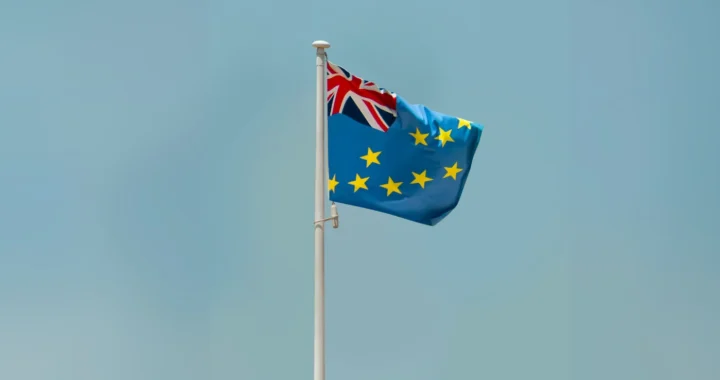 Australian Climate Visa for Citizens of Tuvalu: Showcasing cross-border partnership in light of the climate crisis
Australian Climate Visa for Citizens of Tuvalu: Showcasing cross-border partnership in light of the climate crisis  Nickel Mining in Raja Ampat and the Widespread Cost of Natural Resource Exploitation
Nickel Mining in Raja Ampat and the Widespread Cost of Natural Resource Exploitation  Lumbung Sosial: Challenges and Opportunities of Indonesia’s Social Barn Program
Lumbung Sosial: Challenges and Opportunities of Indonesia’s Social Barn Program 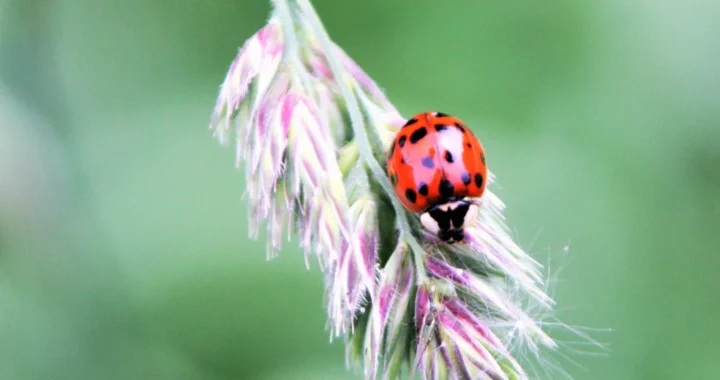 A Worrying State of Insect Decline
A Worrying State of Insect Decline 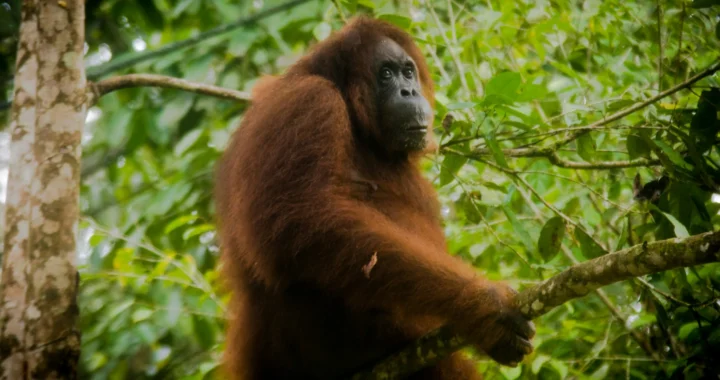 GEF Approves Funding for Biodiversity Conservation Projects in Indonesia
GEF Approves Funding for Biodiversity Conservation Projects in Indonesia